Java workshop #2
Language basics
Recap
- Java is case sensitive ( a vs A)
- A class is saved in a .java file
- The compiled class/code is stored in a .class file
- The name of the class should be the same as the name of the file
- In order to start a java program we need to have a class with a main() method
Recap (2)
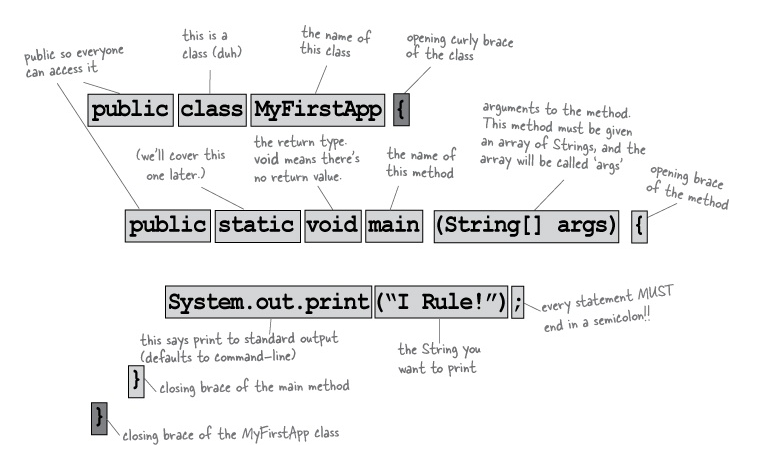
Variables
There are 2 types of variables:
- Primitive (e.g.: numbers)
- Object reference (e.g.: a "Dog" object)
Variables (2)
- Variables must have a name
- Variables must have a type

Primitive types
- They come in different sizes
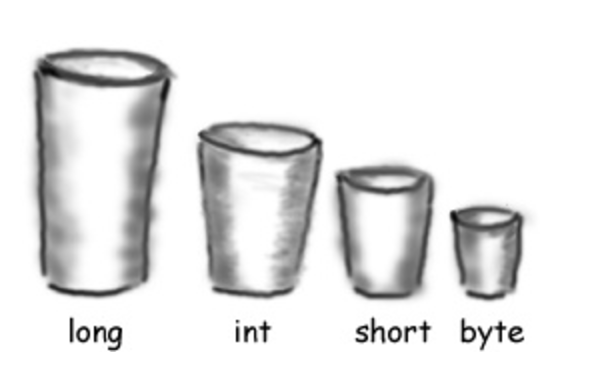
Primitive types(2)
Boolean & char
| Type | Bit depth | Value Range |
|---|---|---|
| boolean | JVM Specific | true/false |
| char | 16 bit | 0 to 65535 |
Primitive types(3)
Integer
| Type | Bit depth | Value Range |
|---|---|---|
| byte | 8 bits | -128 to 127 |
| short | 16 bit | 32768 to 32767 |
| int | 32 bits | -2147483648 to 2147483647 |
| long | 64 bits |
Primitive types(4)
Floating point
| Type | Bit depth |
|---|---|
| float | 32 bits |
| double | 64 bit |
Primitive types(5)
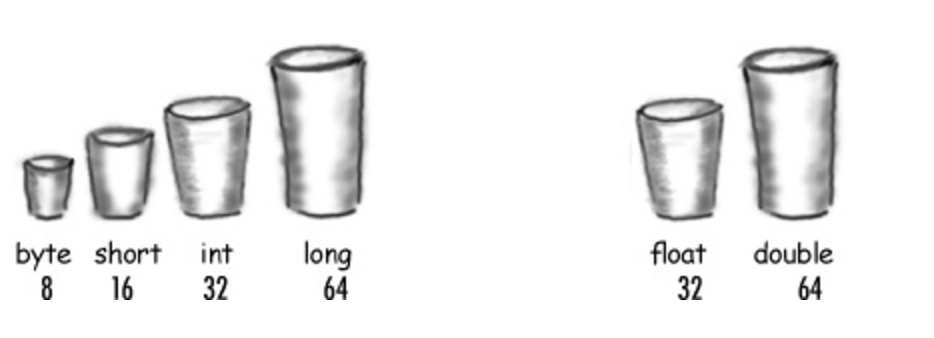
Creating a new project
- From the IntelliJ menu choose: File > New Project
Choose project type: Java
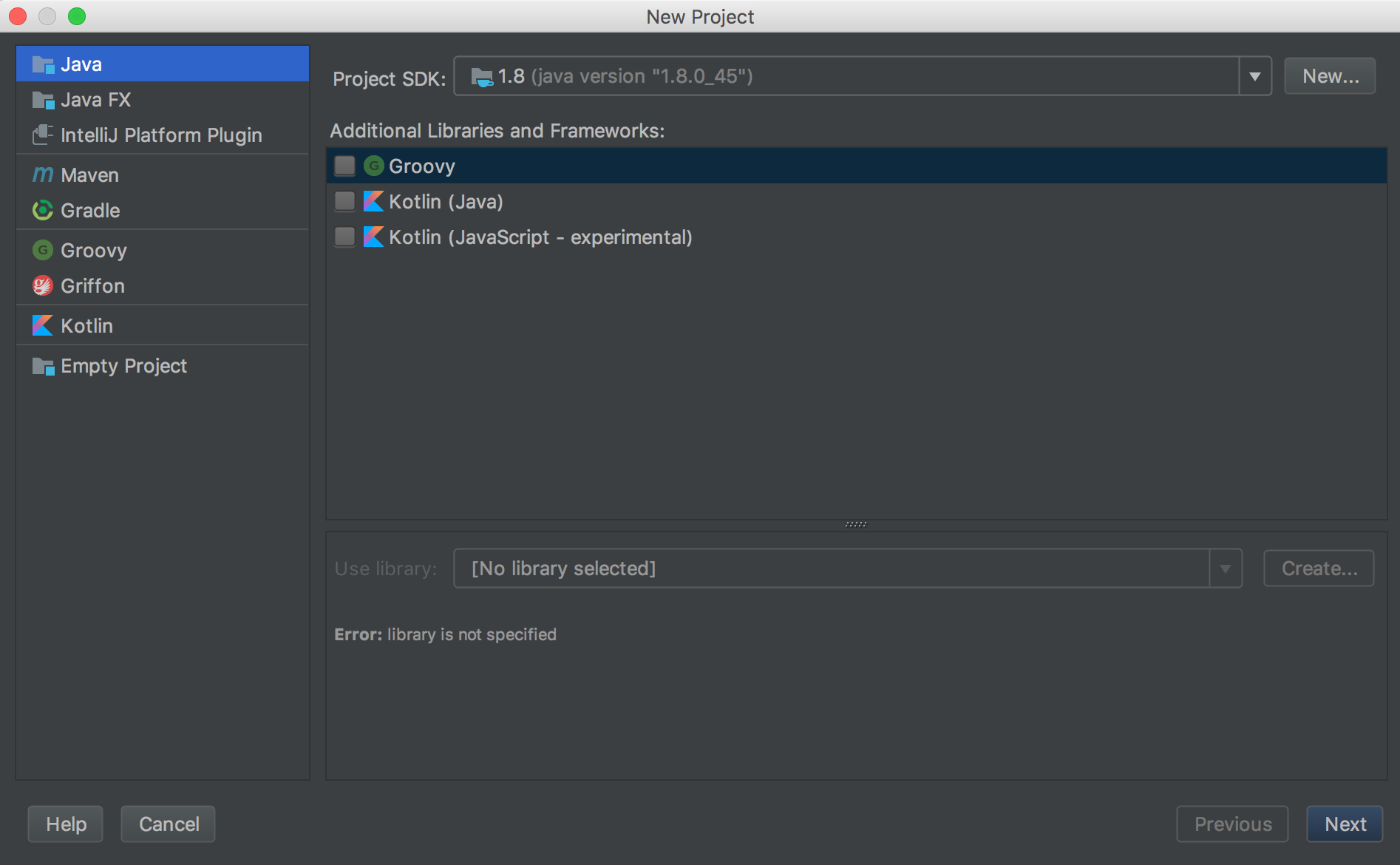
Select project template
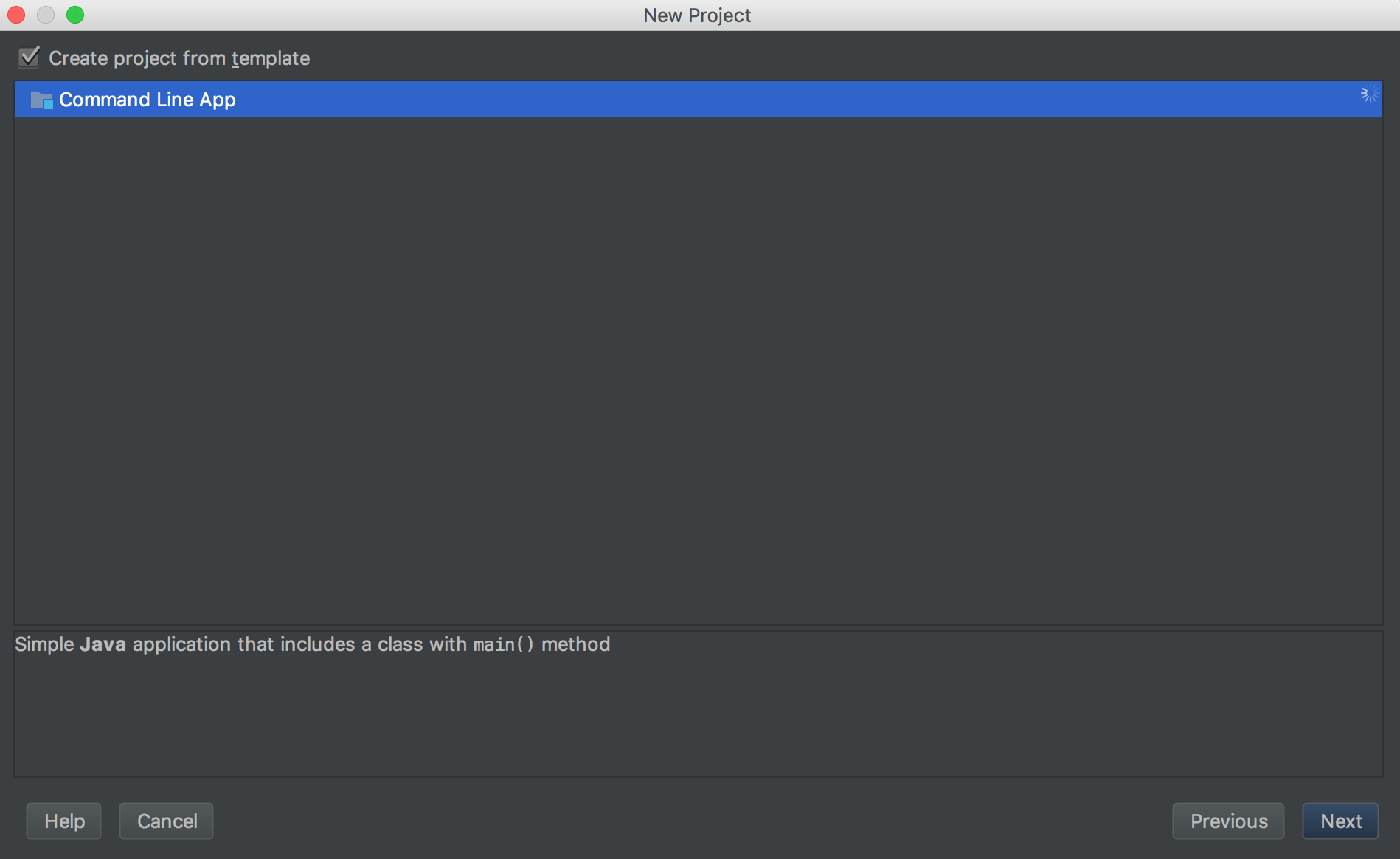
Set project name: Types
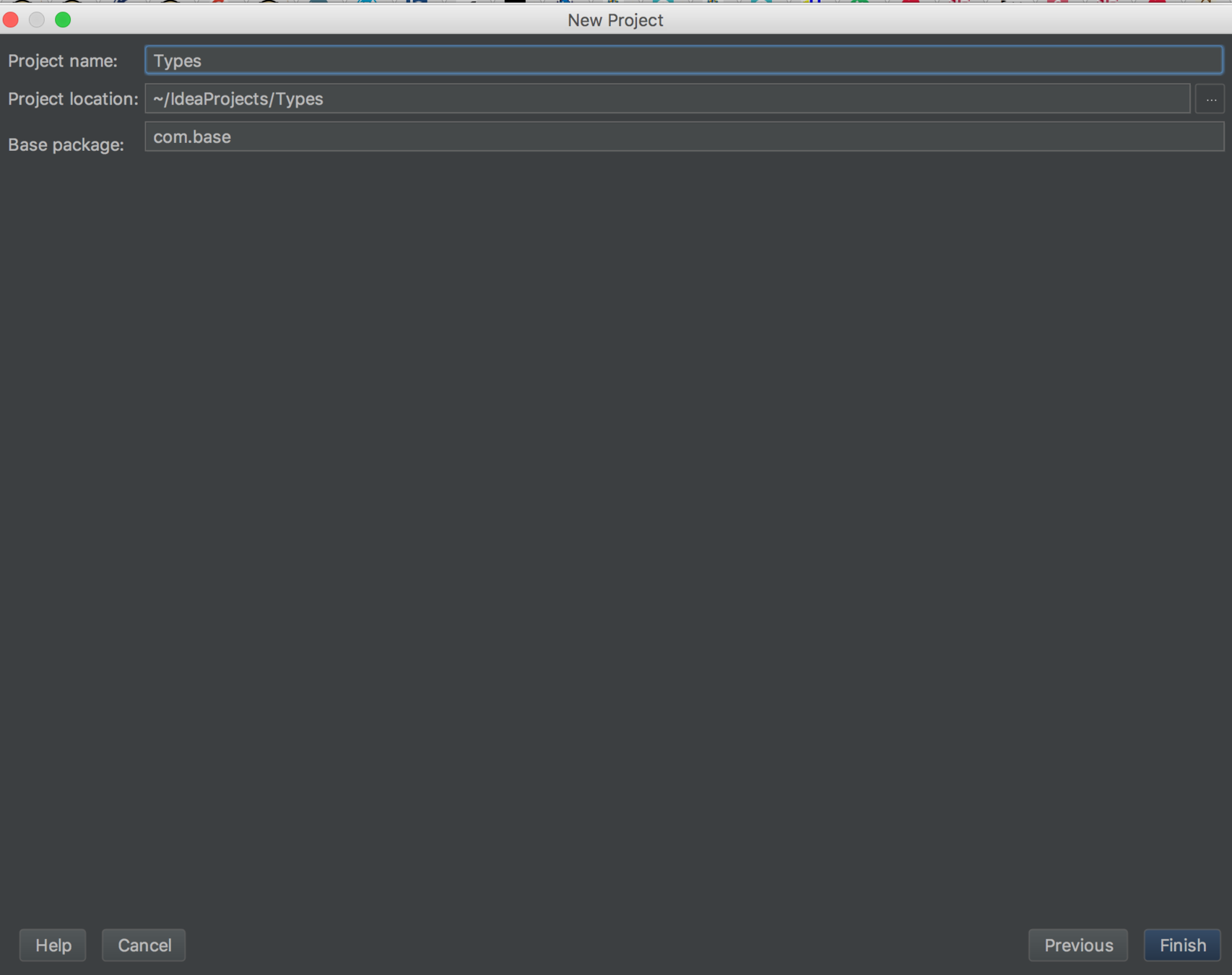
Define an integer variable
- Add the following code in the main() method and run it
public static void main(String[] args){
int i = 25;
System.out.println(i);
}
Compatibility
- Add a new line to your program
public static void main(String[] args){
int i = 25;
byte b = i;
System.out.println(i);
}
- What happened?
Let's tell Java we want a conversion
public static void main(String[] args) {
int i = 25;
byte b = (byte) i;
System.out.println(b);
}
- Change the value of i to 128 or an integer bigger than 128. What happens?
Remember?

This means:
int i = 128;
byte b = (byte)i;
Let's put all primitive types in our project
public static void main(String[] args) {
boolean result = true;
char capitalC = 'C';
byte b = 100;
short s = 10000;
int i = 100000;
long l = 1234L;
double d = 123.4;
float f = 123.4f;
System.out.println (result);
System.out.println(f);
System.out.println(l);
System.out.println(capitalC);
}We can even do calculations
public static void main(String[] args) {
int i = 23;
int j = 5;
int sum = i + j;
int difference = i - j;
int quotient = i / j;
int remainder = i % j ;
int product = i * j;
System.out.println("Sum: " + sum);
System.out.println("Difference: " + difference);
System.out.println("Quotient: " + quotient);
System.out.println("Remainder: " + remainder);
System.out.println("Product: " + product);
}More calculations
public static void main(String[] args) {
double i = 21.7;
int j = 5;
double sum = i + j;
double difference = i - j;
double quotient = i / j;
double product = i * j;
System.out.println("Sum: " + sum);
System.out.println("Difference: " + difference);
System.out.println("Quotient: " + quotient);
System.out.println("Product: " + product);
}If you want to practice more
Data types (primitives):
https://www.hackerrank.com/challenges/java-datatypes
https://www.hackerrank.com/challenges/30-data-types
(day 1)
Note: You need to register for 3- days of code and another challenge unlocks every day (for 30 days).
Useful to go with the primitives:
https://www.hackerrank.com/challenges/30-operators (day 2)
A bit more challenging:
https://www.hackerrank.com/challenges/java-int-to-string
Control Structures
- They are used to tell the program to do something:
- if - else (do something if a specific condition applies)
- for / while (do something again and again)
if
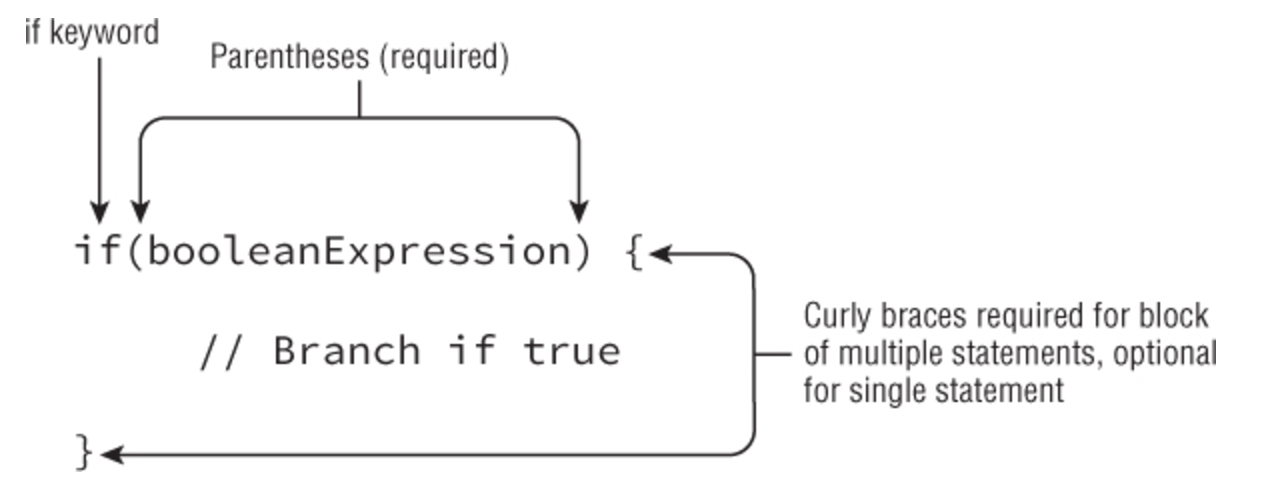
Let's create a new project (again)
- Name the project "Greeting"
- And add the following code in the main method
public static void main(String[] args) {
int hourOfTheDay = 10;
if (hourOfTheDay < 11) {
System.out.println("Good morning!");
}
}if - else
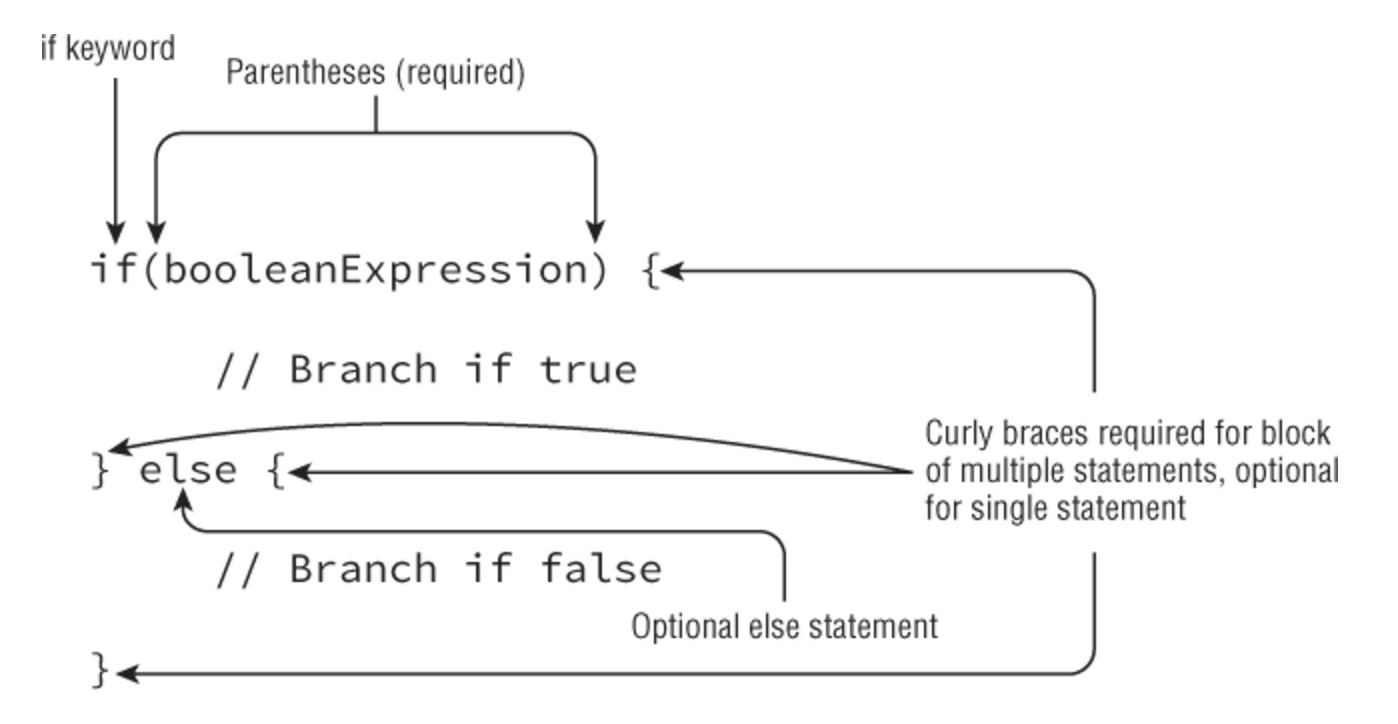
Adding another greeting
public static void main(String[] args) {
int hourOfTheDay = 17;
if (hourOfTheDay < 11) {
System.out.println("Good morning!");
} else {
System.out.println("Good afternoon!");
}
}And another one
public static void main(String [] args){
int hourOfTheDay = 17;
if (hourOfTheDay < 11) {
System.out.println("Good morning!");
} else if (hourOfTheDay < 15) {
System.out.println("Good afternoon!");
} else {
System.out.println("Good evening!");
}
}for
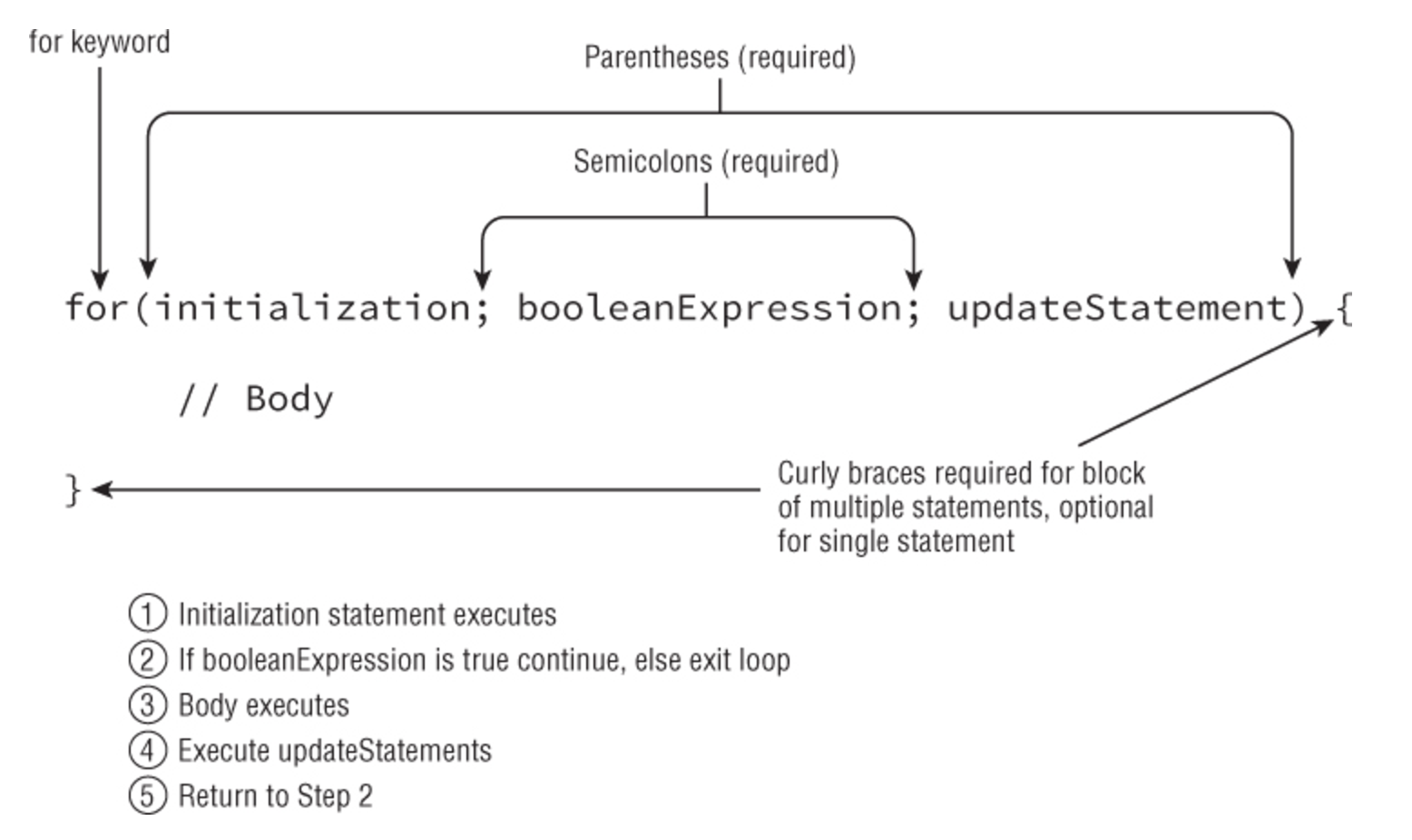
for
public static void main(String [] args){
for (int x = 0; x < 10; x = x + 1) {
System.out.println("x is now " + x);
}
}while
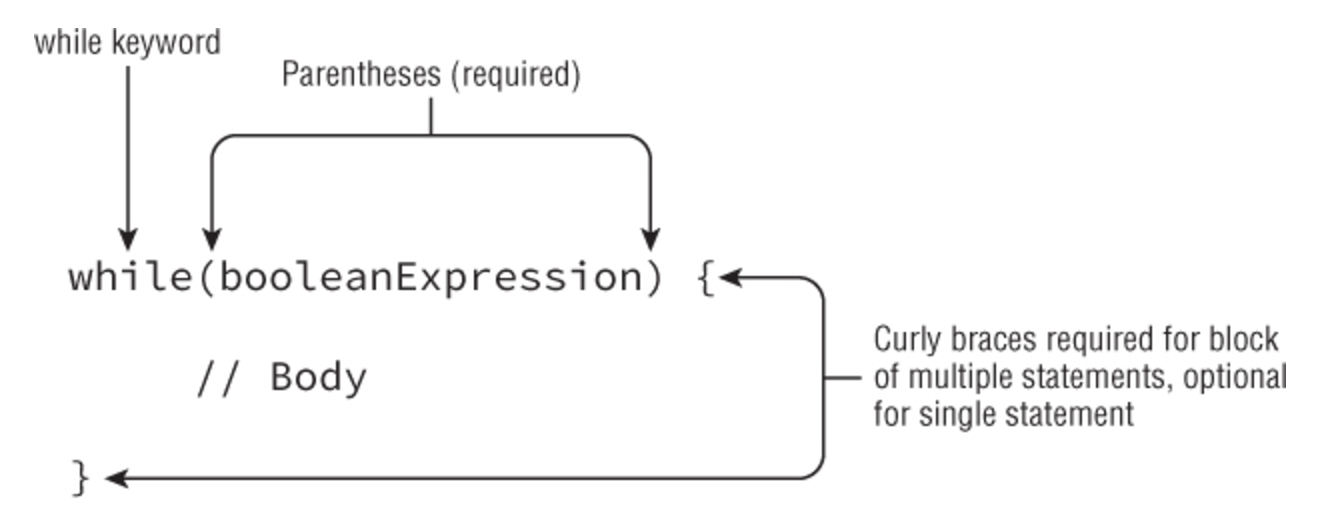
while
public static void main(String[] args) {
int x = 15;
while (x > 12){
System.out.println(x);
x = x - 1;
}
System.out.println("Last value: " + x);
}- After running the code, change the value of x to 11 and see what happens
do - while
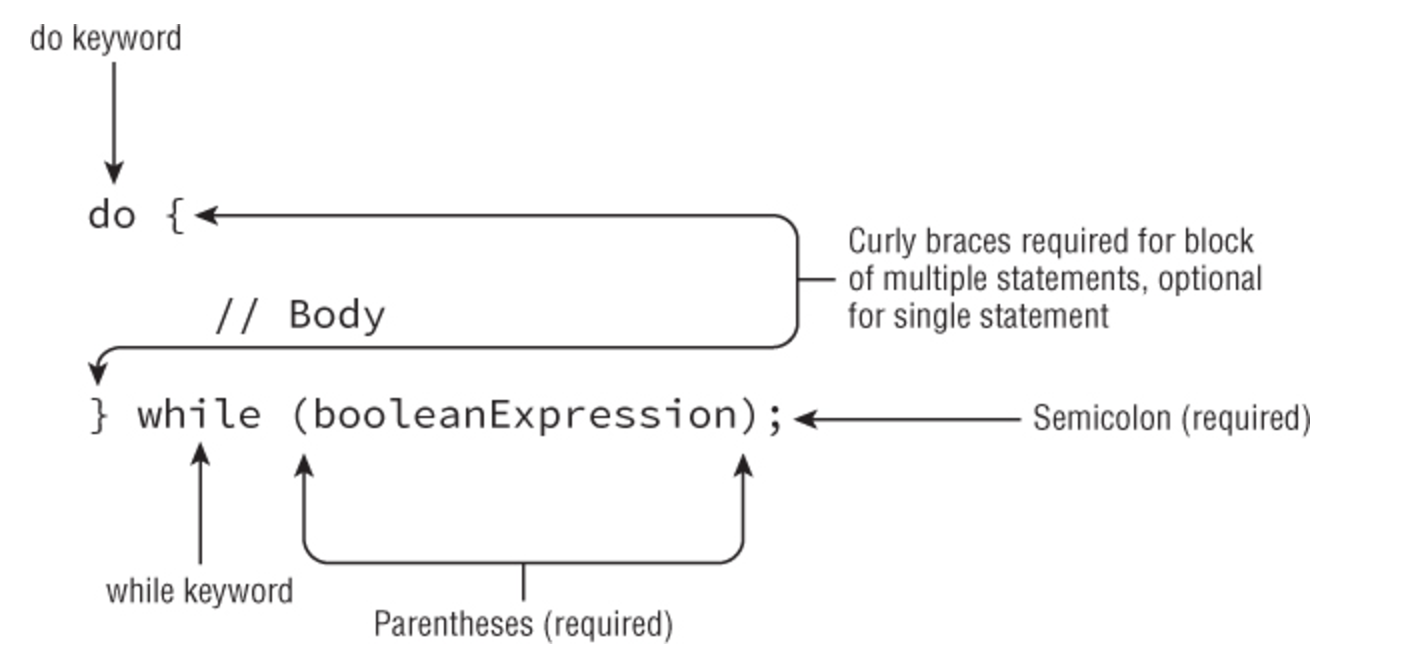
do - while
public static void main(String[] args) {
int x = 15;
do {
System.out.println(x);
x = x - 1;
} while (x > 12);
System.out.println("Last value: " + x);
}- Change the value of x to 12 and observe what happens
Let's combine
public static void main(String[] args) {
int j = 5;
for (int i = 0; i < 10; i++){
if (i == j) {
System.out.println("I found it!");
} else {
System.out.println(i);
}
}
}- Check the output: when does the loop stop?
Let's stop the loop
public static void main(String[] args) {
int j = 5;
for (int i = 0; i < 10; i++){
if (i == j) {
System.out.println("I found it!");
break;
} else {
System.out.println(i);
}
}
}If you want to practice more
https://www.hackerrank.com/challenges/java-loops-i (simple for loop)
https://www.hackerrank.com/challenges/java-if-else
https://www.hackerrank.com/challenges/30-conditional-statements (day 3 - if/else)
https://www.hackerrank.com/challenges/30-loops (day 5)
https://open.kattis.com/problems/timeloop (for loop)
Classes and objects
- Classes are the building blocks of a java program
- Classes contain the definition of what a program should do
- An object is an instance of a class in the program
- You can have multiple objects of the same class
Classes and objects(2)

Classes and objects(3)

Classes and objects (4)

A class contains
- Class Name
- Fields/variables - used for storing data
- Methods (functions/procedures) - used for manipulating data
- The fields and methods of a class are called class members
Let's create a new project
- Set "Dogs" as the project name
Create a new class
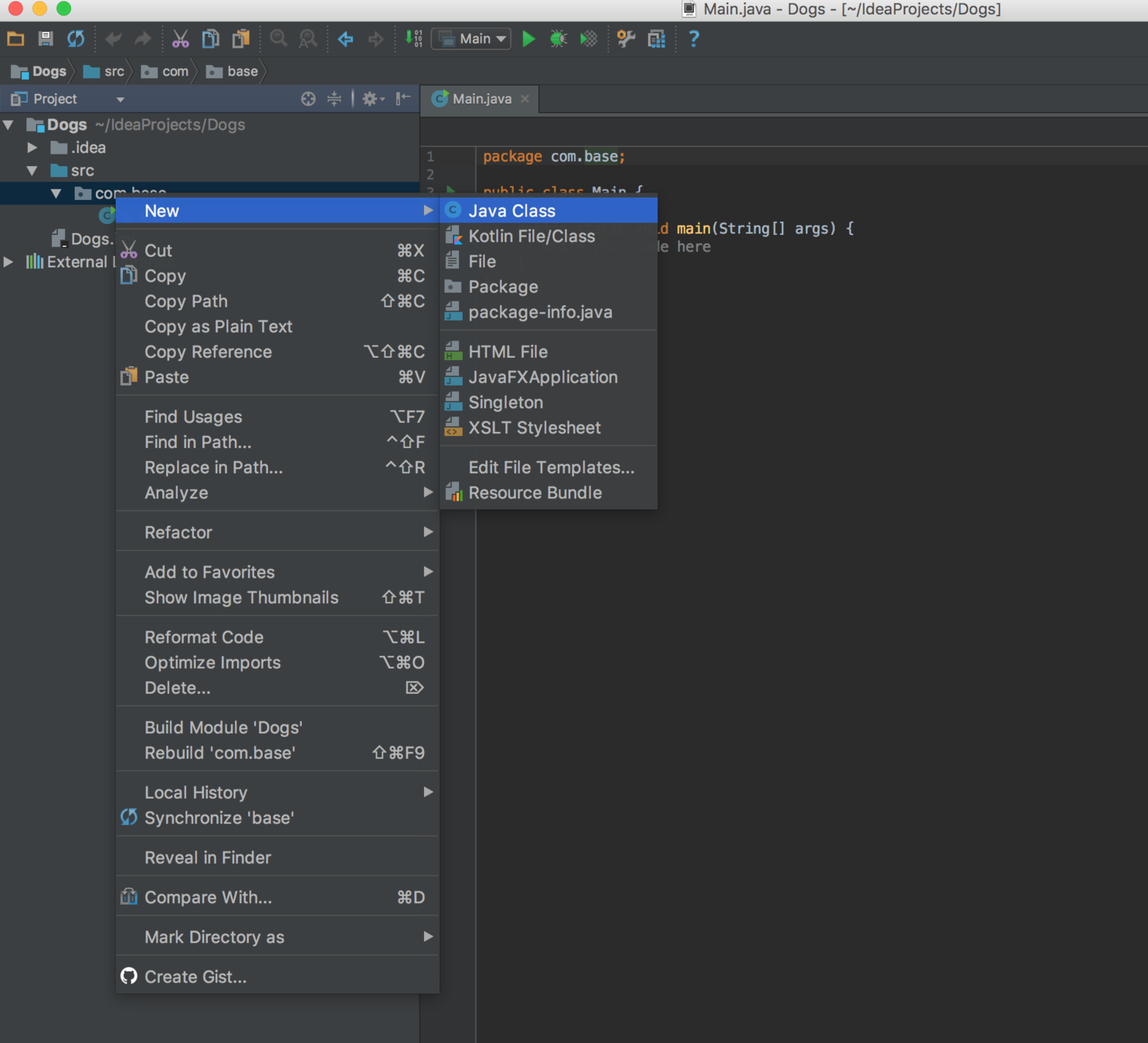
- Right click on src.com.base
- Select New > Java class
- Set the class name: Dog
Let's define the "Dog" class
public class Dog {
//field
String name;
//methods
public void setName(String newName){
name = newName;
}
public String getName(){
return name;
}
public void bark(){
System.out.println(name + ": wuff! wuff!");
}
}Let's create a "Dog" object
public static void main(String[] args) {
Dog dog = new Dog();
dog.setName("Benny");
System.out.println("The dog's name is: " + dog.getName());
dog.bark();
}Add the following code in the main method:
Constructors
Dog dog = new Dog();
- Constructors are used to tell the program to create a new object of a specific class
- A constructor is a special method that belongs to the class
- The purpose of a constructor is to initialize fields
Java Workshop #2
By andr33a
Java Workshop #2
Java language basics: objects & classes, data types, control statements
- 942

